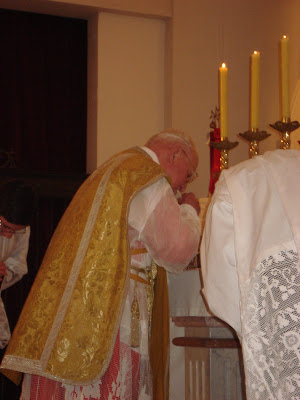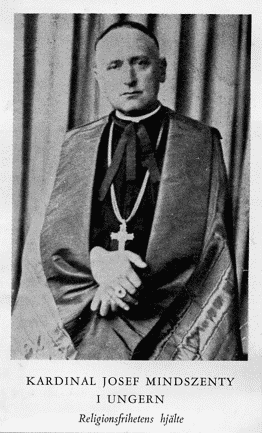El cielo
Va al cielo el que muere en gracia de Dios y no tiene deuda alguna de pena. El que tiene alguna deuda de pena va antes al purgatorio. El cielo es un lugar de suma y eterna felicidad; se ve claramente a Dios; se goza de todo bien, sin mal alguno. La gloria esencial consiste en ver claramente a Dios. Es más dicha ver a Dios por un instante, que gozar eternamente de todas las riquezas, placeres y honores que se pueden imaginar en este mundo; porque el mundo entero comparado con Dios es como nada. ¡Qué dicha será, Dios mío, veros, no por un instante, sino por toda la eternidad! Los buenos estarán eternamente en el cielo. Todos hemos sido criados para el cielo. Va al cielo todo el que quiere ir de veras, resueltamente, esto es, el que pone los medios necesarios para conseguirlo. Todos los hombres quieren ir al cielo; pero algunos tienen sólo el querer del perezoso; quieren ir al cielo y no quieren poner los medios necesario para conseguir el más precioso de todos los bienes. El cielo es el premio de valor infinito que Dios tiene reservado a los que le sirven fielmente en esta vida. Es un premio tan precioso que para conseguírnoslo, el mismo Hijo de Dios dio toda su sangre y aún la vida.
Si para dárnoslo, Dios nos exigiera pedírselo de rodillas dos horas diariamente, o que hiciéramos durante un millón de años la más rigurosa penitencia, aun así el cielo fuera como regalado. Pero Dios no nos pide tanto, sino sólo que observemos sus divinos mandamientos; cosa bien fácil de hacer con la divina gracia, que nunca falta. Lo único que nos puede hacer perder el cielo es el pecado mortal. Si los hombres para conseguir los bienes eternos, tuvieran, no digo tanto, sino la mitad del cuidado que tienen para conseguir los bienes de la tierra, todos serían santos, todos irían al cielo. Más ¡ay! Muchos hombres viven sobre la tierra como si tuvieran que permanecer en ella para siempre, sin cuidarse para nada de merecer la eterna felicidad.
En el cielo los premios son proporcionados a la cantidad y calidad de las obras buenas hechas en gracia de Dios. Quien tiene menos premio no envidia al que tiene más; como un niño contento con su vestido chico no envidia al que lo tiene grande. Cada obra buena que practicamos, estando en gracia de Dios, tiene su mérito y su premio en el cielo. El premio correspondiente a cada obra buena, aún a las más insignificantes, es superior a todos los bienes materiales de la tierra y durará eternamente. Procuremos aprovechar todos los días, y aún todos los instantes de nuestra vida, haciendo todo el bien que podamos para ir aumentando siempre nuestros méritos y premios de la gloria. Si los que están en el cielo pudieran tenernos envidia de algo, la tendrían, porque nosotros, mientras vivimos, podemos aumentar siempre el tesoro de méritos y de premios para el cielo, y ellos no.
El purgatorio

Va al purgatorio el que muere en gracia de Dios y tiene alguna deuda de pena. Esta deuda de pena puede ser: 1º- Por pecados veniales; y 2º- Por no haber hecho la debida penitencia de los pecados mortales, perdonados en cuanto a la culpa y pena eterna. Con la confesión bien hecha se perdonan siempre las culpas graves y la pena eterna, pero no siempre queda perdonada toda la pena temporal. Dios, al perdonar el pecado mortal, ordinariamente conmuta la pena eterna en una pena temporal. Esta pena temporal debe pagarse en esta vida o en el purgatorio. En esta vida se paga haciendo obras buenas, especialmente cumpliendo la penitencia impuesta por el confesor. El purgatorio es un lugar de expiación temporal. Las almas del purgatorio, cuando han satisfecho del todo por sus pecados, van al cielo. Dios, infinitamente justo, ninguna obra buena o mala deja sin premio o castigo, aunque se trate de cosas pequeñas. Los que mueren con solos pecados veniales no merecen el infierno, ni pueden ir al cielo, porque nada manchado puede entrar en él. Debe, pues, existir un lugar para que las almas se purifiquen antes de entrar en el cielo. En el purgatorio se padece la privación de la vista de Dios, el tormento del fuego y otras penas. El mayor dolor de las benditas Ánimas es no poder ver a Dios y pensar que, siendo El infinitamente bueno, le han ofendido. Las Almas benditas, al verse manchados con el pecado, con gusto se sumergen en aquellas llamas, y aun quisieran fueran más ardientes para purificarse más pronto. Aprendamos de las benditas Ánimas a aborrecer el pecado, aún leve, sobre todo mal.
Los sufragios: Podemos socorrer a las benditas Ánimas, y aún librarlas del purgatorio, con oraciones, indulgencias, limosnas y otras buenas obras, y, sobre todo, con la Santa Misa. Se llaman Sufragios las obras buenas que se hacen a favor de las benditas Animas del purgatorio. Los sufragios son sólo a manera de súplicas, que la divina justicia acepta en la medida que cree conveniente. Por esto un alma no siempre obtiene infaliblemente todos lo efectos de los sufragios aplicados a ella especialmente. La Santa Iglesia aprueba que se repitan los sufragios para un mismo difunto. Hacen muy mal los que no se acuerdan de aliviar con sufragios a las almas de los difuntos.
Algunos sólo procuran que el entierro sea muy suntuoso, y nada o muy poco hacen para el alivio del alma. El dogma de los sufragios es motivo de alegría, no sólo para los ricos, sino también para los pobres. Los ricos hacen muy bien en ordenar sufragios; éstos les abreviarán mucho las penas en el purgatorio. Los pobres tienen una madre tiernísima, que es la Santa Iglesia, la cual ruega especialmente por ellos, que son sus hijos queridísimos. La devoción a las benditas Animas del purgatorio es utilísima, porque hace practicar muchas obras buenas, causa grande gozo en el cielo y ayuda en gran manera a conseguir la salvación de quien practica esta devoción. El voto de Animas consiste en ceder para siempre a favor de las benditas Ánimas del purgatorio, toda la parte satisfactoria de nuestras buenas obras, y todos los sufragios que otros hicieren por nosotros. Seamos, pues, muy devotos de las benditas Animas del purgatorio. Procuremos socorrerlas, oyendo Misa y comulgando muy a menudo, aun diariamente, si nos es posible; recemos el Santo Rosario, el Via Crucis, etc. Esta es devoción buena y práctica, con la cual libraremos a muchas almas del purgatorio y las haremos entrar en el cielo.
Limbo de los niños

Va al limbo de los niños el que muere con el solo pecado original. El que muere antes del uso de razón sin el bautismo, muere con el solo pecado original. En el limbo no se sufre nada; se goza la felicidad natural. Dios hizo, pues, un gran beneficio a los que están en el limbo, dándoles la existencia; podría haberles dejado en la nada de donde los sacó. Los que mueren después del uso de razón van al cielo o al infierno, según que hayan o no cumplido la ley de Dios.
El infierno

Va al infierno el que muere con el pecado mortal. El infierno es el lugar en donde se padecen penas eternas. Estas penas son de daño y sentido. La pena de daño es la privación de la vista de Dios, Sumo Bien. Es la mayor pena de los condenados. Cuando el alma se separa del cuerpo se dirige hacia Dios con un ímpetu irresistible, con mucha mayor vehemencia que el pez busca el agua o el que está en el fuego procura salir de él; pero Dios rechaza eternamente al alma que está en pecado mortal. La pena de sentido es el tormento del fuego y todo mal, sin bien alguno. En el infierno los demonios son los verdugos.
Basta un solo pecado mortal para merecer el infierno. En el infierno la pena es proporcionada a la cantidad y calidad de los pecados cometidos. Es cierto que hay infierno. Nuestro Señor Jesucristo, que es Verdad infalible, lo dice muchas veces en el santo Evangelio. Dios prohíbe el mal moral y debe castigar al que lo comete. La ley, para que los hombres sean compelidos a cumplirla, debe tener señalada una pena a los transgresores. Los transgresores de la ley humana son justamente castigados; con mayor razón deben ser castigados los transgresores de la ley divina. Nadie puede quebrantar impunemente la ley de Dios. Dios es infinitamente justo; así como premia a los buenos con felicidad eterna, castiga a los malos con pena eterna. El pecado mortal es una ofensa grave a la majestad infinita de Dios; por consiguiente, merece un castigo infinito. El pecador no puede sufrir un castigo infinito en la intensidad, pero sí en la duración. Las penas del purgatorio son poco temidas porque son temporales. Dios, como sabio legislador, debía establecer un castigo, que de veras apartase del pecado mortal; tal es el castigo eterno del infierno.
El temor del infierno es una de las causas de que se cumpla la ley de Dios y las almas se salven. ¿Por un solo pecado que se comete en un momento castiga Dios con una eternidad de penas? El castigo se mide por la gravedad de la ofensa, no por el tiempo que se emplea en cometerla. Aun la justicia humana castiga con cárcel perpetua, y hasta con la muerte, el crimen que se ejecuta en un momento. Dios es Padre de misericordia para los buenos; mas, para los que mueren en pecado mortal, es juez terribilísimo. Los pecadores no deben confiar en que por ser Dios bueno y misericordioso, no los ha de condenar al infierno, pues es también infinitamente justo.
Tan bueno y misericordioso como ahora era Dios cuando de un golpe arrojó al infierno a millares de ángeles. Por ser Dios infinitamente bueno, ama infinitamente la virtud y aborrece infinitamente el pecado: por esto nadie premia o castiga tanto como Dios. Si porque Dios es bueno y misericordioso no debiera castigar con el infierno, por la misma razón no debiera permitir los males sin número que existen sobre la tierra. Dios, en el gobierno del universo, no se rige por el sentimentalismo de los hombres. En este mundo, lugar de prueba y no precisamente de premios y castigos, Dios, con sabiduría y justicia infinitas, permite catástrofes horrendas, dolores acerbísimos, que alcanzan a buenos y malos.
N. S. Jesucristo, los santos mártires, hijos queridísimos de Dios, sufrieron tormentos tan atroces que horroriza el pensarlo. ¿Qué no exigirá la divina justicia que sufra el pecador rebelde obstinado en el mal? Los que mueren en pecado mortal quedan reducidos a la misma condición que el demonio, de quien no sentimos compasión. Va al infierno quien quiere, pues Dios a todos da gracia abundante para no caer en el pecado; y a los pecadores, mientras viven, les ofrece siempre generoso perdón. Nadie se condena sino por su propia y libre voluntad, cometiendo culpa grave. Aun los salvajes que nunca han oído hablar de la religión cristiana, si se condenan es por su culpa; pues a donde no llega la voz del hombre llega la voz de Dios. ¿Quieres que no haya infierno, sino cielo para ti? Vive siempre en gracia de Dios; y si tienes la desgracia inmensa de perderla, procura recobrarla cuanto antes.




















.jpg)









